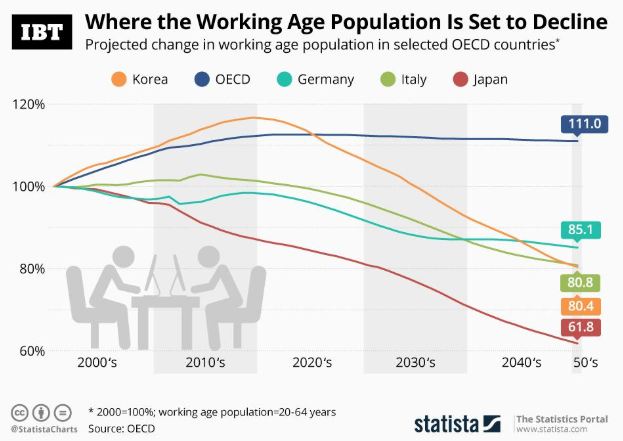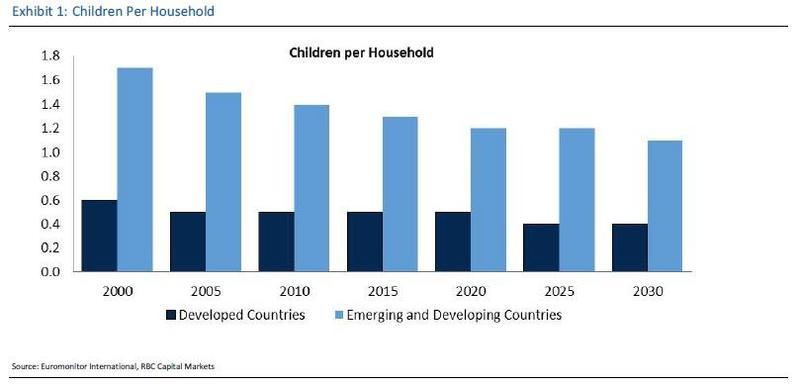via Zerohedge:
Forget the trade war, debt, deflation, automation, and artificial intelligence: one of the most significant threats to the global economy and the future of the world as we know it is demographics.
A new OECD report, published by International Business Times, said Korea, Japan, Germany, and Italy could see their working-age populations decline to dangerously low levels by 2050.
The report took each OECD country’s population between the ages of 20 and 64 in the year 2000 as a base and was able to project the 2050 population. What they discovered was the working class population by 2050 would be 80% of its base year in Korea and Italy. In Japan, the workforce population would be much worse, approximately 60% of its original size.
For the OECD as a whole, there are about 34 countries from around the world, the size of the working age population is expected to increase by 111% of its original size by 2050. Much of the growth will be driven by stable birth rates and growing populations, like Australia and Turkey.
The OECD noted that Japan’s working-age population has been in collapse for nearly three decades. Korea’s working-age population was expanding until just recently but is expected to begin contracting this year.
For countries experiencing a decline in the working-age population, there will be widespread consequences across all aspects of the global economy: as households shrink, so does discretionary spending, and ultimately will impact living space. In developed markets, large cities will see increased pressure on real estate and rent prices for apartments.
In a separate report, we showed how countries around the world are set to experience a decline in the number of children per household in the 2000 – 2030 period. More specifically, looking from 2015 out to 2030, Euromonitor expects developed markets to have a ~20% decline in the number of children per household and developing markets a ~15% decline. In fact, as RBC points out, it was as recently as 2012 when the number of couples without children globally surpassed the number of those with children.
While this demographic trend is troubling, it’s only set to worsen in the coming decades. Many developed countries will have a severe demographic imbalance where the older generation is disproportionately larger than, the younger generations. In other words, many parts of the world are marching straight towards Japanification.

